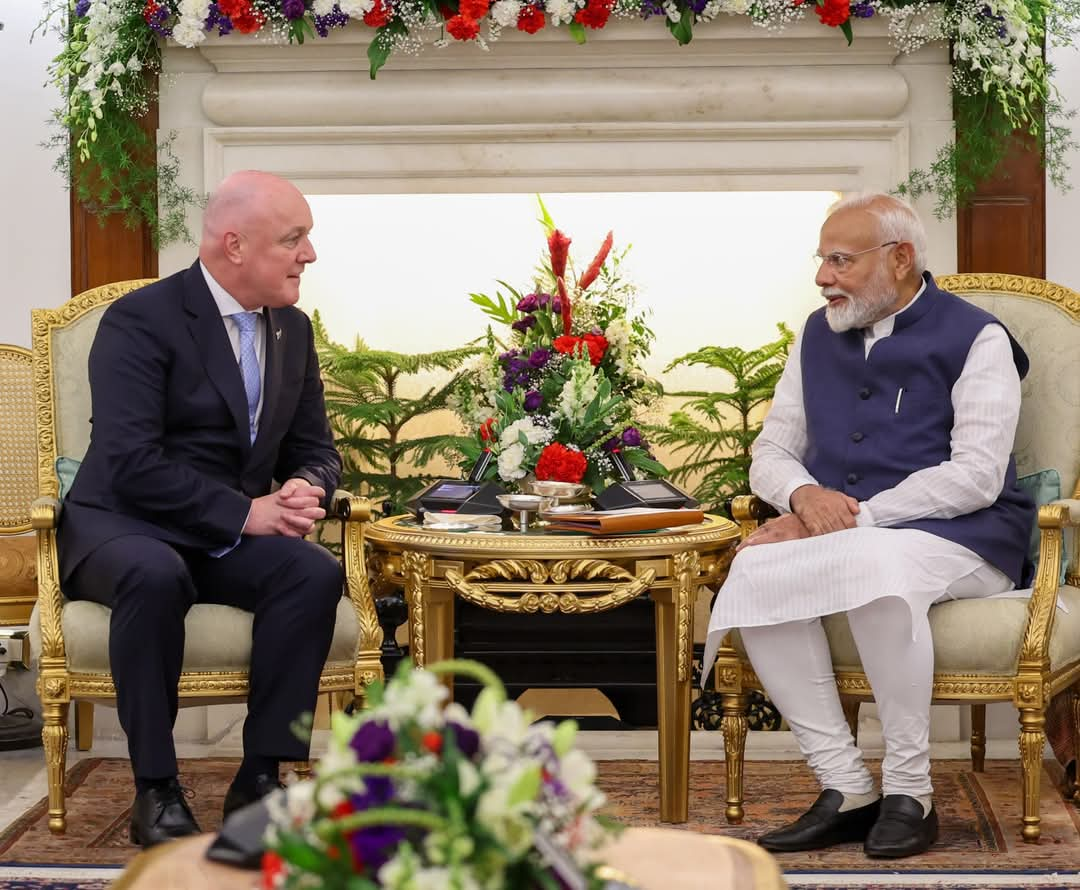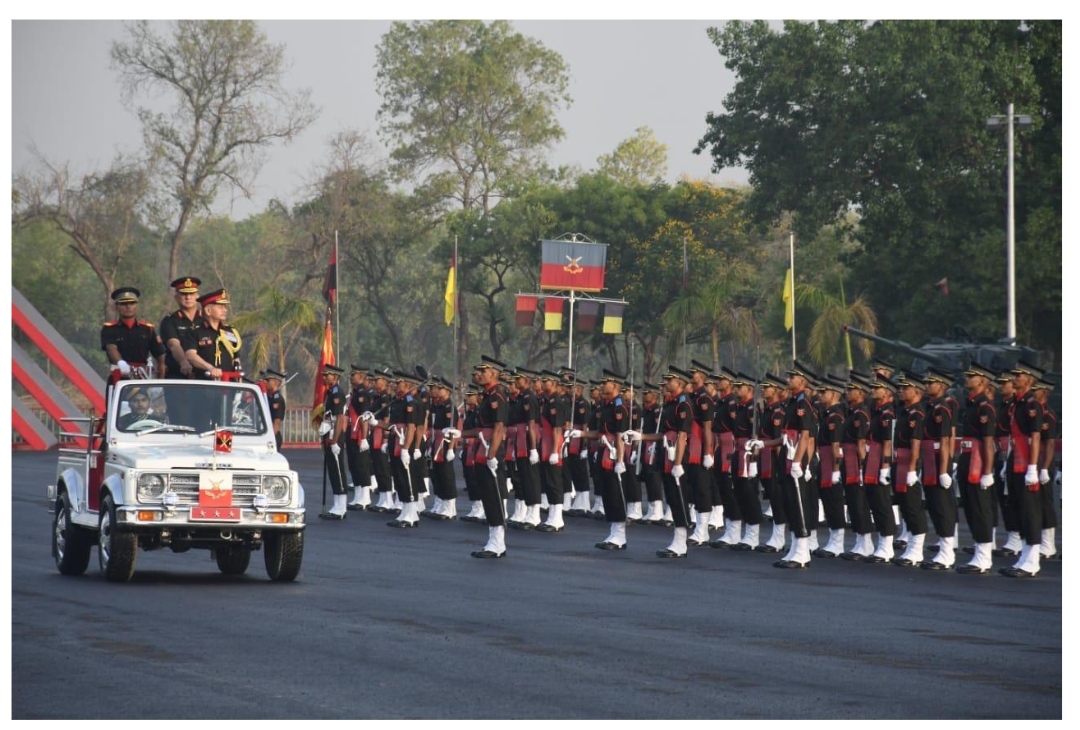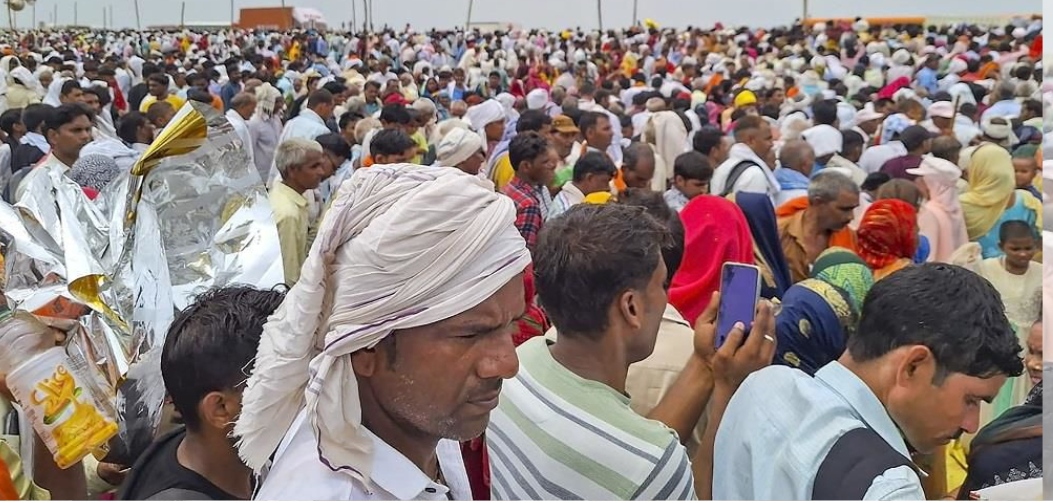India and New Zealand Strengthen Bilateral Ties with New Cooperation and Initiatives.
New Delhi:
In a historic move to strengthen their bilateral ties, Indian Prime Minister Narendra Modi and New Zealand Prime Minister Christopher Luxon have reaffirmed their commitment to enhancing cooperation across various sectors, including trade, defense, education, and regional security. This development came as part of Prime Minister Luxon’s official visit to India from March 16 to 20, 2025. This marks Luxon’s first visit to India in his current capacity, accompanied by key ministers and a high-level delegation from New Zealand.
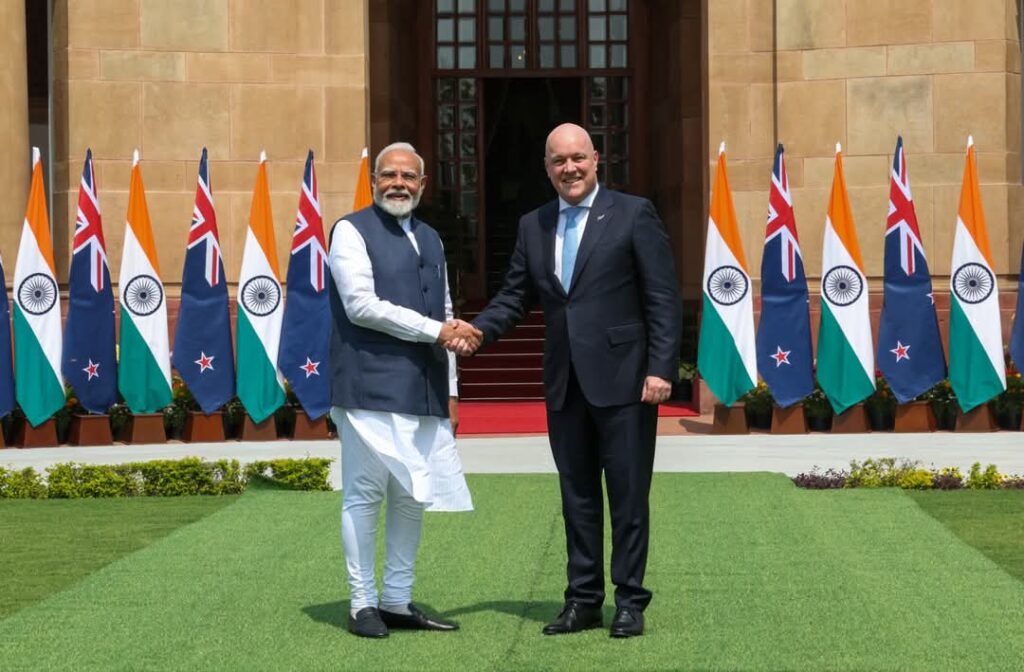
The visit commenced with a warm and traditional reception in New Delhi, where Prime Minister Luxon engaged in comprehensive talks with Prime Minister Modi. The two leaders emphasized the shared democratic values and robust people-to-people ties that serve as the foundation of their growing partnership. Both leaders noted the immense untapped potential for further collaboration and agreed to deepen cooperation in multiple areas including trade, investment, defense, education, agri-tech, space exploration, and sports.
A key highlight of the visit was Prime Minister Luxon’s role as the Chief Guest at the 10th edition of the Raisina Dialogue on March 17, where he delivered the inaugural keynote address. Prime Minister Luxon also visited Raj Ghat to pay respects to Mahatma Gandhi and met with President Droupadi Murmu.
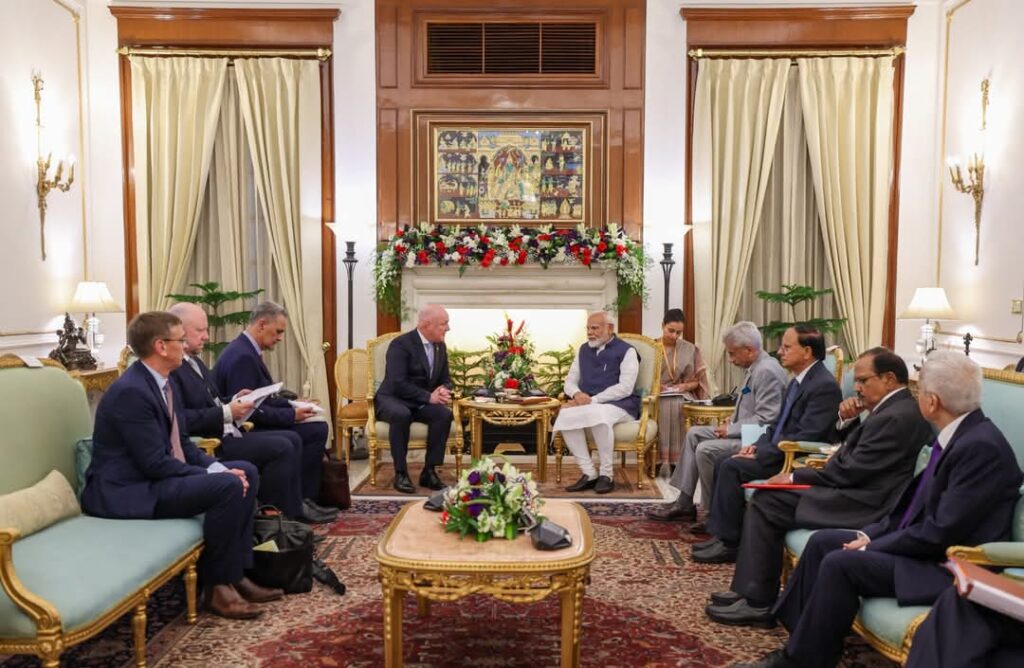
Key Areas of Cooperation and New Agreements
The two leaders underscored the importance of maritime security, particularly in the Indo-Pacific region, where both nations share common interests in maintaining an open, inclusive, and stable environment. They agreed to strengthen multilateral cooperation and reaffirmed the right to freedom of navigation in accordance with international law, particularly the United Nations Convention on the Law of the Sea (UNCLOS).
In terms of economic and trade relations, India and New Zealand celebrated the launch of negotiations for a Free Trade Agreement (FTA), which aims to deepen economic integration and unlock new trade and investment opportunities. The FTA negotiations are expected to cover a range of sectors, including digital payments, horticulture, and forestry, with the goal of building on each country’s economic strengths.
Both leaders also welcomed the signing of the Authorized Economic Operators Mutual Recognition Arrangement (AEO-MRA) in 2024, aimed at facilitating smoother and more efficient movement of goods between the two nations. Additionally, a Memorandum of Cooperation on horticulture and a Letter of Intent on forestry were signed, promoting further collaboration in these critical sectors.
Defense and Security Initiatives
On the defense front, the two countries made significant strides by signing the India-New Zealand Memorandum of Understanding for Defense Cooperation, which aims to enhance bilateral defense engagement and includes exchanges of military personnel, participation in joint exercises, and strengthening maritime safety. Both leaders also noted the ongoing progress in defense cooperation, highlighted by India’s naval visits to New Zealand and the upcoming port call of the Royal New Zealand Navy Ship HMNZS Te Kaha in Mumbai.
Furthermore, New Zealand expressed its interest in joining the Indo-Pacific Oceans Initiative (IPOI), a move welcomed by Prime Minister Modi, which is expected to foster further collaboration on maritime issues.
Climate Change and Disaster Resilience
The discussions also focused on climate change, with both countries agreeing to bolster cooperation in disaster resilience, particularly through the Coalition for Disaster Resilient Infrastructure (CDRI). Prime Minister Modi also welcomed New Zealand’s support for India’s leadership in the International Solar Alliance (ISA), with both nations acknowledging the urgent need to transition toward low-emission, climate-resilient economies.
A key development in this area was the proposal for a Memorandum of Cooperation on earthquake mitigation, aiming to strengthen both countries’ preparedness and response capabilities.
People-to-People Ties and Education
Prime Minister Modi and Prime Minister Luxon emphasized the importance of growing education, mobility, and sports links between the two nations. They agreed to explore further opportunities for Indian students in New Zealand and foster academic partnerships in science, innovation, and technology. The leaders also announced a refreshed Education Cooperation Arrangement aimed at enhancing exchanges between their educational institutions.
The two nations also plan to celebrate the 100th anniversary of their sporting ties with “Sporting Unity” events scheduled for 2026. The focus will be on promoting collaboration in cricket, hockey, and other Olympic sports, strengthening the deep-rooted sports culture shared by the countries.
Regional and Global Cooperation
On the global stage, both Prime Ministers highlighted the importance of multilateralism and the need for a more representative United Nations Security Council. They expressed their support for India’s candidacy for permanent membership in a reformed UN Security Council, with New Zealand offering its endorsement. Furthermore, both leaders reiterated their condemnation of terrorism in all its forms and emphasized the need for international collaboration to combat terrorist organizations and dismantle their networks.
The leaders also shared concerns over the war in Ukraine and expressed support for a peaceful resolution based on international law and territorial integrity. Additionally, they reaffirmed their commitment to peace in the Middle East and the resolution of the Israeli-Palestinian conflict.
Looking Ahead
At the conclusion of the visit, Prime Minister Luxon invited Prime Minister Modi to visit New Zealand, further solidifying the growing bilateral relationship between the two nations. Both leaders expressed satisfaction with the progress made during this visit and reiterated their commitment to deepening cooperation for the benefit of both countries and the broader Indo-Pacific region.
This official visit signifies a new chapter in the India-New Zealand relationship, with both nations setting their sights on a future of mutual prosperity and enhanced global cooperation.

